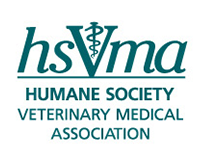Veterinarians Key to Puppy Mill ReformJune 7, 2010 by Dr. Lisa Hindle Deppe  Puppy mill dogs receive live in poor conditions and receive very little veterinary care. Dr. Lisa Hindle Deppe Someone once said to me, "Lisa, there are veterinarians who happen to do some animal rescue. You are not one of those vets. You are an animal rescuer who just happens to be a veterinarian." I believe this is one of the highest compliments I have ever received. I roll that statement around in my head on those days when what I pay people in wages seems to be more than the clinic income, or when an adopted pet is returned to us, or when we have no room to take in any more homeless pets. There are issues involved with being a veterinarian and being in rescue that are emotionally traumatizing, physically draining, and just plain exhausting. The mistreatment of dogs used in mass breeding facilities, also known as puppy mills, is one of those issues. I have examined and treated hundreds of dogs that have been relinquished by puppy mills and have gained an acute knowledge of the types of conditions commonplace in these dogs, which are far from common in pampered pets. The veterinarian's role in these facilities is minimal, and therefore medical care is lacking. The dogs often suffer from poor husbandry and multiple health problems, including poor grooming practices, severe parasitism, severe periodontal disease, hereditary conditions and inadequate socialization. These medical conditions often occur due to improper sanitation, insufficient care, inadequate oversight, and antiquated laws. Code of ethicsThere is a code of ethics that is accepted as standard for the veterinary profession, which was passed by the Executive Board of the American Veterinary Medical Association. The code states, "Veterinarians should first consider the needs of the patient: to relieve disease, suffering, or disability while minimizing pain or fear." In reference to genetic defects, the Veterinary Code of Ethics also states that "Performance of surgical or other procedures in all species for the purpose of concealing genetic defects in animals to be shown, raced, bred, or sold, as breeding animals is unethical. However, should the health or welfare of the individual patient require correction of such genetic defects, it is recommended that the patient be rendered incapable of reproduction." I have spayed and neutered long time breeding animals and found evidence of repaired umbilical hernias and stenotic nares. I have refused to fix an entropion without spaying the dog and have been later offered one of that dog's puppies, after the eye was altered by another veterinarian. Either veterinarians are not as active as they should be within the commercial breeding arena, because laws and regulations do not require it, or the veterinarians involved with these facilities are neglecting to follow their code of ethics. I suspect, and hope, that it is more often the former than the latter. How veterinary professionals can helpWhy are we, as veterinarians and animal advocates, so curiously silent? Why are we letting our domesticated animals fall to the wayside by allowing substandard environmental conditions, improper health care, and antiquated laws? As veterinarians, our Code of Ethics should be of utmost importance. It is what we take pride in. It is why our clients seek us out. And it is what our patients require of us.
Mahatma Gandhi once said, "Be the change you want to see in the world." Do not just be an animal doctor. Your job does not end there. Become an educator. Be heard as an animal advocate. The Humane Society of the United States has more information on efforts to regulate puppy mills. Veterinarians in Missouri can go to missourifordogs.com for information on a ballot initiative that will improve the lives of dogs in commercial breeding operations in that state. Dr. Lisa Hindle Deppe is a 1995 graduate of the Iowa State University College of Veterinary Medicine and the owner of the Jewell Animal Hospital, as well as Founder and Director of the South Hamilton Animal Alliance. She is also the author of the Veterinary Rescuer Blog. She is active in animal welfare, animal rescue, and animal related legislative issues. This article was adapted from her presentation "A Veterinarian's Experience with Iowa's Puppy Mill Dogs," as given to the Care of Animals in Commercial Enterprises Legislative Study Committee on September 29, 2009 in support of the proposed Puppy Mill Bill, which recently became law in Iowa. |
